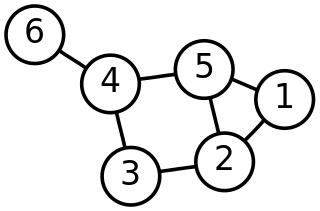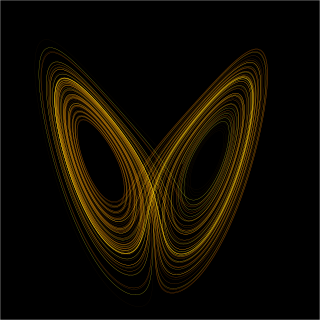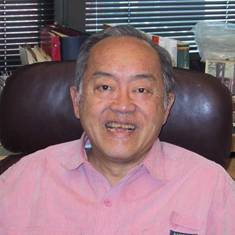Related Research Articles
Control theory is a field of control engineering and applied mathematics that deals with the control of dynamical systems in engineered processes and machines. The objective is to develop a model or algorithm governing the application of system inputs to drive the system to a desired state, while minimizing any delay, overshoot, or steady-state error and ensuring a level of control stability; often with the aim to achieve a degree of optimality.

Discrete mathematics is the study of mathematical structures that can be considered "discrete" rather than "continuous". Objects studied in discrete mathematics include integers, graphs, and statements in logic. By contrast, discrete mathematics excludes topics in "continuous mathematics" such as real numbers, calculus or Euclidean geometry. Discrete objects can often be enumerated by integers; more formally, discrete mathematics has been characterized as the branch of mathematics dealing with countable sets. However, there is no exact definition of the term "discrete mathematics".

In mathematics, a dynamical system is a system in which a function describes the time dependence of a point in an ambient space, such as in a parametric curve. Examples include the mathematical models that describe the swinging of a clock pendulum, the flow of water in a pipe, the random motion of particles in the air, and the number of fish each springtime in a lake. The most general definition unifies several concepts in mathematics such as ordinary differential equations and ergodic theory by allowing different choices of the space and how time is measured. Time can be measured by integers, by real or complex numbers or can be a more general algebraic object, losing the memory of its physical origin, and the space may be a manifold or simply a set, without the need of a smooth space-time structure defined on it.

Signal processing is an electrical engineering subfield that focuses on analyzing, modifying and synthesizing signals, such as sound, images, potential fields, seismic signals, altimetry processing, and scientific measurements. Signal processing techniques are used to optimize transmissions, digital storage efficiency, correcting distorted signals, subjective video quality and to also detect or pinpoint components of interest in a measured signal.

Computer simulation is the process of mathematical modelling, performed on a computer, which is designed to predict the behaviour of, or the outcome of, a real-world or physical system. The reliability of some mathematical models can be determined by comparing their results to the real-world outcomes they aim to predict. Computer simulations have become a useful tool for the mathematical modeling of many natural systems in physics, astrophysics, climatology, chemistry, biology and manufacturing, as well as human systems in economics, psychology, social science, health care and engineering. Simulation of a system is represented as the running of the system's model. It can be used to explore and gain new insights into new technology and to estimate the performance of systems too complex for analytical solutions.

In computer science, a state space is a discrete space representing the set of all possible configurations of a "system". It is a useful abstraction for reasoning about the behavior of a given system and is widely used in the fields of artificial intelligence and game theory.
A hybrid system is a dynamical system that exhibits both continuous and discrete dynamic behavior – a system that can both flow and jump. Often, the term "hybrid dynamical system" is used, to distinguish over hybrid systems such as those that combine neural nets and fuzzy logic, or electrical and mechanical drivelines. A hybrid system has the benefit of encompassing a larger class of systems within its structure, allowing for more flexibility in modeling dynamic phenomena.
In optimal control theory, the Hamilton-Jacobi-Bellman (HJB) equation gives a necessary and sufficient condition for optimality of a control with respect to a loss function. It is, in general, a nonlinear partial differential equation in the value function, which means its solution is the value function itself. Once this solution is known, it can be used to obtain the optimal control by taking the maximizer of the Hamiltonian involved in the HJB equation.
Time evolution is the change of state brought about by the passage of time, applicable to systems with internal state. In this formulation, time is not required to be a continuous parameter, but may be discrete or even finite. In classical physics, time evolution of a collection of rigid bodies is governed by the principles of classical mechanics. In their most rudimentary form, these principles express the relationship between forces acting on the bodies and their acceleration given by Newton's laws of motion. These principles can also be equivalently expressed more abstractly by Hamiltonian mechanics or Lagrangian mechanics.

Dynamical systems theory is an area of mathematics used to describe the behavior of complex dynamical systems, usually by employing differential equations or difference equations. When differential equations are employed, the theory is called continuous dynamical systems. From a physical point of view, continuous dynamical systems is a generalization of classical mechanics, a generalization where the equations of motion are postulated directly and are not constrained to be Euler–Lagrange equations of a least action principle. When difference equations are employed, the theory is called discrete dynamical systems. When the time variable runs over a set that is discrete over some intervals and continuous over other intervals or is any arbitrary time-set such as a Cantor set, one gets dynamic equations on time scales. Some situations may also be modeled by mixed operators, such as differential-difference equations.
In mathematics, symbolic dynamics is the practice of modeling a topological or smooth dynamical system by a discrete space consisting of infinite sequences of abstract symbols, each of which corresponds to a state of the system, with the dynamics (evolution) given by the shift operator. Formally, a Markov partition is used to provide a finite cover for the smooth system; each set of the cover is associated with a single symbol, and the sequences of symbols result as a trajectory of the system moves from one covering set to another.
The supervisory control theory (SCT), also known as the Ramadge–Wonham framework, is a method for automatically synthesizing supervisors that restrict the behavior of a plant such that as much as possible of the given specifications are fulfilled. The plant is assumed to spontaneously generate events. The events are in either one of the following two categories controllable or uncontrollable. The supervisor observes the string of events generated by the plant and might prevent the plant from generating a subset of the controllable events. However, the supervisor has no means of forcing the plant to generate an event.
DEVS abbreviating Discrete Event System Specification is a modular and hierarchical formalism for modeling and analyzing general systems that can be discrete event systems which might be described by state transition tables, and continuous state systems which might be described by differential equations, and hybrid continuous state and discrete event systems. DEVS is a timed event system.
Stochastic control or stochastic optimal control is a sub field of control theory that deals with the existence of uncertainty either in observations or in the noise that drives the evolution of the system. The system designer assumes, in a Bayesian probability-driven fashion, that random noise with known probability distribution affects the evolution and observation of the state variables. Stochastic control aims to design the time path of the controlled variables that performs the desired control task with minimum cost, somehow defined, despite the presence of this noise. The context may be either discrete time or continuous time.

Yu-Chi "Larry" Ho is a Chinese-American mathematician, control theorist, and a professor at the School of Engineering and Applied Sciences, Harvard University.
Jan Hendrik van Schuppen is a Dutch mathematician and Professor at the Department of Mathematics of the Vrije Universiteit, known for his contributions in the field of systems theory, particularly on control theory and system identification, on probability, and on a number of related practical applications.
Continuous Simulation refers to simulation approaches where a system is modeled with the help of variables that change continuously according to a set of differential equations.
FlexSim is a discrete-event simulation software package developed by FlexSim Software Products, Inc. The FlexSim product family currently includes the general purpose FlexSim product and healthcare systems modeling environment.
Valentin Afraimovich was a Soviet, Russian and Mexican mathematician. He made contributions to dynamical systems theory, qualitative theory of ordinary differential equations, bifurcation theory, concept of attractor, strange attractors, space-time chaos, mathematical models of non-equilibrium media and biological systems, travelling waves in lattices, complexity of orbits and dimension-like characteristics in dynamical systems.
Boolean differential calculus (BDC) is a subject field of Boolean algebra discussing changes of Boolean variables and Boolean functions.
References
- "IEEE CSS Technical Committee on Discrete Event Systems".
- Cassandras, C. G.; Lafortune, S. (2008). Introduction to Discrete Event Systems. Springer. ISBN 978-0-387-33332-8.
- Kumar, Ratnesh; Garg, Vijay K. (1995). Modeling and Control of Logical Discrete Event Systems. Springer. ISBN 978-0-7923-9538-6.